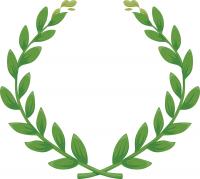

Lección 9 - Sports/Hobbies (Deportes/Pasatiempos)
Navegación: Inicio
→ Nivel Avanzado
→ Lección 9
→ Lectura
Páginas en esta lección: Vocabulario - Gramática - Comprensión Oral - Diálogo - Lectura - Expresiones - Dictado - Juego
Esta página: Lee un artículo de la historia de los Juegos Olímpicos.

A continuación, encontrarás una lista de vocabulario clave que necesitas conocer para entender la lección. Haz clic en cada palabra para escucharla y practicar su pronunciación.
Selecciona la traducción.
The first Olympic Games were held in Ancient Greece in 776 B.C. in the plain of Olympia. They began as a religious festival to honor the gods. The Greeks measured time in terms of four-year periods called Olympiads. The Olympic games were part of the celebration of the beginning of each Olympiad.
In the first Olympic Games the only competition was a foot race. Later wrestling, the pentathlon, and boxing were added. In 680 B.C. chariot racing became a part of the games. Athletes usually competed nude as clothing could slow them in the race. In the horse racing competition riders rode naked and bareback (no saddle) around the track. As you can imagine, it was very difficult to control the horses this way. The winner would receive a simple olive branch, not a gold medal.
People descended on Olympia by the thousands to see the games. The stadium was built to seat between 45,000 and 50,000 people. Since the Olympic games were designed to honor Zeus, a male god, women were not allowed to see the games. The penalty for women who viewed the games was death.
The ancient games continued until 400 AD when the sacred shrine at Olympia was destroyed.
Baron Pierre de Coubertin, a Frenchman, revived the games in 1896. He felt that the games would promote physical fitness and good relations between people of different countries. Beginning in 1894 delegates from 12 countries met to lay out plans for the modern games to be held in Athens, Greece.
The next Olympics were held in Paris and then in St. Louis, but interest waned. The Olympics gained popularity again with a very well-organized Olympics in 1908 in London. They began giving out medals not only to the winner but also to the first and second runner up (gold, silver, and bronze medals). In 1912 in Stockholm electrical timing equipment was used for the first time. In the 1928 Games in Amsterdam the tradition of burning the Olympic flame throughout the games began.
The Olympic Games have grown significantly since the days of the single foot race. Now the events are divided into winter and summer games alternately every two years. Athletes from all over the world continue to gather for the Olympic Games to enjoy friendly international competition just as Baron Pierre de Coubertin dreamed.
Escribe las respuestas en los espacios de las siguientes preguntas.
Describe tu deporte olímpico favorito. ¿Como se juega? ¿Por qué te gusta? ¿Quién es tu atleta favorita en ese deporte?
Escribe la "Lección Escrita" en la sección para comentarios abajo. Inglés Mundial es una comunidad de personas que quieren aprender inglés gratis. Ayúdense unos a otros y si ven un error en la escritura de otro, respondan con la corrección. Comentarios que no son de "Janet Castrejon" (la autora de Inglés Mundial) no representan a Inglés Mundial. Si alguien está escribiendo comentarios inapropiados en esta página, por favor envía un mensaje al [email protected] e incluye en cuál página viste el comentario. Para aprender de errores comunes, sigue la página de Inglés Mundial en Facebook o Instagram.
comments powered by Disqus
Inglés Avanzado -
Lección 9 - Sports/Hobbies (Deportes/Pasatiempos)
Vocabulario - Gramática - Comprensión Oral - Diálogo - Lectura - Expresiones - Dictado - Juego
Básico - Intermedio - Avanzado - Profesores
Pronombres - Pronunciación - Verbos - Verbos Irregulares
Vocabulario - Gramática - Pronunciación - Ortografía
Palabras Comunes - Preguntas - Estudiar en el Extranjero
Diálogos en Inglés - Lecturas en Inglés